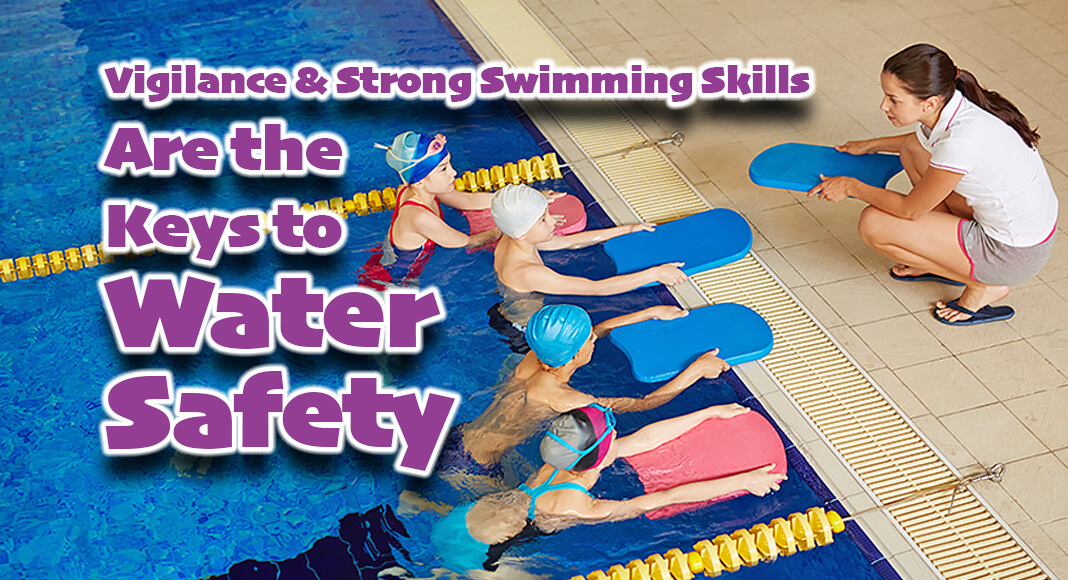
Mega Doctor News
The American Red Cross is stressing the importance of constant, active adult supervision, along with ensuring that everyone learns to swim, as critical layers of protection to help prevent drowning.
Unfortunately, tragic events where children and adults lose their lives to drowning occur all too often. According to the Centers for Disease Control and Prevention, about 10 people die from unintentional drowning every day.
“Drowning can occur quickly and silently, wherever there is water,” said Vanessa Valdez, Regional Communications Manager. “Everyone should have basic water safety knowledge and skills to help them be safer and make good choices around the water.”
| WATER SAFETY TIPS The following tips are layers of protection that will help people stay safe in, on and around the water: |
| Do your part, be water smart! Ensure that everyone in the family learns to swim well. |
| Adults: actively supervise children; stay within arm’s reach of young children and newer swimmers. And kids: follow the rules. |
| Don’t fool with a pool: fence it in. Enclose your pool and spa with four-sided, four-foot fencing and use self-closing, self-latching gates. |
| Don’t just pack it; wear your U.S. Coast Guard-approved life jacket – always when on a boat and if in a situation beyond your skill level. Inflatable children’s toys and water wings can be fun, but they are no substitute for a life jacket and adult supervision. |
| Swim as a pair near a lifeguard’s chair – everyone, including experienced swimmers, should swim with a buddy in areas protected by lifeguards. |
| Reach or throw, don’t go! Know what to do to help someone in trouble, without endangering yourself; know how and when to call 9-1-1; and know CPR. |
| WATER COMPETENCY According to a Red Cross survey, more than half of all Americans (54 percent) either can’t swim or don’t have all of the basic swimming skills. The Red Cross and its Scientific Advisory Council recommend that everyone learn to perform critical water safety skills, referred to as ‘water competency.’ The skills, performed in a sequence, include being able to: |
| Step or jump into the water over your head; |
| Return to the surface and float or tread water for one minute; |
| Rotate in a full circle and find an exit; |
| Swim 25 yards to the exit; and |
| Exit from the water. If in a pool, be able to exit without using the ladder. |
| “People should be able to perform all five water competency skills. Those who can’t, should enroll in Red Cross Learn-to-Swim classes offered in their area,” added Vanessa Valdez, Regional Communications Manager. |
SWIM LESSONS Red Cross swim lessons help people develop skills and water safety behaviors that help them be more comfortable and safe when they are in, on and around the water. People can find age-appropriate water orientation and Learn-to-Swim programs for themselves and their family members by contacting their local aquatic facility and asking for Red Cross swimming and water safety programs, or by visiting redcross.org/takeaclass.
SWIM APP The Red Cross Swim App promotes water safety education and helps parents and caregivers of young people learning how to swim. The app has features specifically designed for children, including a variety of kid-friendly games, videos and quizzes. People can download the app for free by searching for ‘American Red Cross’ in their app store or at http://3cu.be/shareswim.
HOME POOL ESSENTIALS COURSE The Red Cross and National Swimming Pool Foundation® (NSPF) have developed an online safety course for pool and hot tub owners. Home Pool Essentials (HomePoolEssentials.org) helps people understand the risks of pool ownership, how to maintain a safer and cleaner pool, what safety equipment is appropriate, how to prevent pool and hot tub entrapment hazards, and how to respond to an emergency.
About the American Red Cross:
The American Red Cross shelters, feeds and provides emotional support to victims of disasters; supplies about 40 percent of the nation’s blood; teaches skills that save lives; provides international humanitarian aid; and supports military members and their families. The Red Cross is a not-for-profit organization that depends on volunteers and the generosity of the American public to perform its mission. For more information, please visit redcross.org or cruzrojaamericana.org, or visit us on Twitter at @RedCross.












